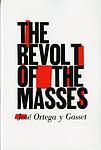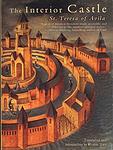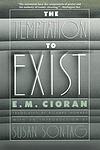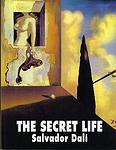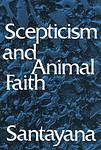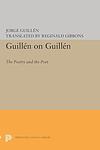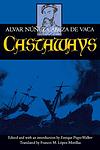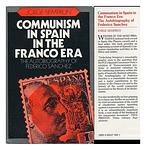The Greatest Romanian, Spanish "Nonfiction" Books of All Time
Click to learn how this list is calculated.
This list represents a comprehensive and trusted collection of the greatest books. Developed through a specialized algorithm, it brings together 300 'best of' book lists to form a definitive guide to the world's most acclaimed books. For those interested in how these books are chosen, additional details can be found on the rankings page.
Genres
Countries
Date Range
Reading Statistics
Click the button below to see how many of these books you've read!
Download
If you're interested in downloading this list as a CSV file for use in a spreadsheet application, you can easily do so by clicking the button below. Please note that to ensure a manageable file size and faster download, the CSV will include details for only the first 500 books.
Download-
1. On the Heights of Despair by Emil Cioran
"On the Heights of Despair" is a philosophical exploration of the human condition, particularly focusing on themes such as existentialism, despair, and nihilism. The author delves into the idea of life as suffering and the inevitability of death, offering a bleak yet thought-provoking perspective on existence. The work is a profound contemplation of life's absurdity, loneliness, and the struggle to find meaning, presenting an introspective journey into the depths of despair and the heights of existential thought.
-
2. The Revolt of the Masses by José Ortega y Gasset
"The Revolt of the Masses" is a philosophical work that discusses the rise of the "mass man" and the potential danger this presents to society. The author argues that the mass man, characterized by his lack of individuality and rejection of higher values, is a product of modern society and its emphasis on equality. He believes that this mass man, who is more concerned with his rights than his responsibilities, threatens to undermine the very foundations of society, leading to potential chaos and instability. The book serves as a warning and a call for a return to individual responsibility and respect for higher values.
-
3. Journey to the Alcarria by Camilo José Cela
"Journey to the Alcarria" is a travel literature piece that takes the reader on a journey through the Alcarria region in Spain. The protagonist, a solitary traveler, explores the landscape, culture, and people of this region, offering detailed descriptions and observations. The narrative captures the essence of Spain's post-war period, revealing the harsh realities of rural life and the resilience of its people. The book is both a physical journey through a specific place and a metaphorical journey into the human condition.
-
4. The True History of the Conquest of New Spain by Bernal Díaz del Castillo
This book provides a first-hand account of the conquest of Mexico by the Spanish during the 16th century. It offers a detailed narrative of the events, battles, and interactions with native tribes, including the Aztecs. The author, a soldier in the Spanish army, provides a unique perspective on Hernán Cortés and his tactics, the politics of the time, and the cultural and religious practices of the indigenous people. The book also highlights the hardships, challenges, and ethical dilemmas faced by the conquistadors.
-
5. Mortal y rosa by Francisco Umbral
"Mortal y Rosa" is a heartbreaking and poignant narrative about a father's grieving process after the loss of his young son. The novel is a profound exploration of death, love, and loss, with the author using beautiful, poetic language to express his deep sorrow and pain. It is not just a lamentation, but also a reflection on life, childhood, and the fleeting nature of time. The book is a testament to the power of words in expressing the inexpressible and a moving tribute to a life cut tragically short.
-
6. The Interior Castle by Teresa of Avila
"The Interior Castle" is a spiritual guide that uses the metaphor of a castle with seven chambers, or 'mansions', to explain the journey of faith. The author describes each mansion as a step closer to God, with the innermost chamber representing union with the divine. The book explores various spiritual concepts such as self-knowledge, detachment, humility, and divine love, providing a roadmap for personal transformation and spiritual growth.
-
7. The Poems Of St. John Of The Cross by John of the Cross
The book is a collection of mystical poetry written by a 16th-century Spanish monk who explores the profound depths of Christian spirituality and the soul's journey towards union with God. Through his lyrical verses, the author delves into themes of love, suffering, and the quest for spiritual purification and enlightenment. His poems are celebrated for their rich imagery and emotional intensity, reflecting his own experiences and the contemplative life. The work is considered a pinnacle of Spanish literature and a significant contribution to Christian mysticism, offering readers a path to understanding the complexities of the divine and the inner workings of the soul.
-
8. Greguerias by Ramón Gómez de la Serna
The book is a collection of witty, poetic, and often surreal aphorisms and reflections that blend humor, irony, and keen observation to capture the essence of everyday objects and experiences in a unique and thought-provoking way. These brief, imaginative musings offer a window into the author's playful mind, as he transforms the mundane into the extraordinary with his inventive use of language and metaphor. The work is a testament to the author's innovative spirit and his ability to see the world through a lens of whimsical creativity.
-
9. Images And Symbols by Mircea Eliade
The book is a profound exploration of the symbolism inherent in religious images, myths, and rituals. It delves into the various ways in which symbols function within different cultures, examining their role in expressing the metaphysical dimension of reality. The author argues that symbols are integral to human experience, allowing individuals to transcend the ordinary world and connect with a deeper, universal level of consciousness. Through an analysis of diverse religious traditions and artistic expressions, the work reveals how symbols serve as a bridge between the sacred and the profane, offering insights into the human quest for meaning and the spiritual dimension of life.
-
10. The Temptation To Exist by Emil Cioran
"The Temptation to Exist" is a philosophical work that explores the human condition and the inherent struggles of existence. The author delves into themes of nihilism, despair, and the search for meaning in a world filled with suffering. Through a series of thought-provoking essays, Cioran challenges traditional beliefs, questions the nature of reality, and reflects on the complexities of human existence, ultimately offering a bleak yet profound perspective on the human experience.
-
11. For My Legionaries by Corneliu Zelea Codreanu
The book is a manifesto and autobiographical account that details the creation and political ideology of the Iron Guard, a nationalist and anti-Semitic organization in Romania during the early 20th century. It combines personal experiences with ideological exposition, advocating for a nationalist revival, anti-communist and anti-Semitic policies, and a radical overhaul of Romanian society based on Christian values and extreme nationalism. The narrative also reflects the author's leadership role and his vision for a unified, spiritually cleansed Romania, emphasizing loyalty, discipline, and the sacrifice necessary to combat perceived corruption and foreign influence.
-
12. Journal, 1935 44 by Mihail Sebastian
"Journal, 1935-44" is a captivating collection of diary entries written by an insightful and introspective individual named Mihail Sebastian. Spanning almost a decade, the journal provides a unique glimpse into the author's personal thoughts, experiences, and observations during a tumultuous period in history. Through his poignant reflections, Sebastian explores themes of identity, love, politics, and the human condition, offering readers a profound and thought-provoking journey through his inner world.
-
13. The Secret Life Of Salvador Dali by Salvador Dali
"The Secret Life of Salvador Dalí" is an autobiography that offers an intriguing glimpse into the mind and life of the renowned surrealist artist. Written by Dalí himself, the book explores his early years, his rise to fame, and the development of his eccentric and flamboyant persona. Through vivid, often bizarre anecdotes and reflections, Dalí shares his thoughts on art, his obsessions, and his relationships with other famous figures of the 20th century. The narrative is characterized by its imaginative prose and the artist’s characteristic blend of arrogance and insight, providing a unique perspective on his creative genius and complex personality.
-
14. Scepticism and Animal Faith by George Santayana
"Scepticism and Animal Faith" is a philosophical work that presents the idea that knowledge is not found through evidence or reason, but through animal faith, a term referring to instinctive beliefs. The book delves into the nature of perception and consciousness, and argues that all human knowledge is grounded in unproven preconceptions. The author suggests that to understand the world, humans must first acknowledge their own preconceived notions and biases, and then attempt to understand the world through a lens of skepticism.
-
15. My Last Sigh by Luis Buñuel
"My Last Sigh" is an autobiography that offers a candid and vivid account of the life and career of one of cinema's most groundbreaking and influential directors. The book delves into his early years in Spain, his deep friendships with prominent artists and intellectuals, and his experiences in the surrealist movement. It also explores his creative process, the making of his major films, and his philosophical and personal reflections. Rich with anecdotes and insights, the memoir provides a unique window into the artistic, social, and political climates of his times, revealing the complex and often contradictory nature of a fiercely original filmmaker.
-
16. Guillén On Guillén by Jorge Guillén
"Guillén on Guillén" is a reflective literary work in which the poet himself delves into the essence of his own poetry, offering readers an intimate exploration of his creative process and the thematic underpinnings of his work. Through a series of essays and commentaries, the poet provides insight into his artistic vision, the philosophical and aesthetic considerations that shape his verse, and the personal experiences that inform his poetic expression. This self-analysis serves as a valuable resource for understanding the poet's contributions to literature and the broader context of 20th-century poetic movements.
-
17. The Life Of Saint Teresa Of Avila By Herself by Teresa of Avila
"The Life of Saint Teresa of Avila by Herself" is an autobiographical account of a 16th-century Spanish nun, Saint Teresa of Avila, who played a crucial role in the reform of the Carmelite order. In this book, she details her spiritual journey, describing her mystical experiences, visions, and the challenges she faced while striving for a deeper relationship with God. Her introspective narrative not only provides profound insights into her personal spiritual struggles and achievements but also offers guidance on prayer and devotion, making it a significant work in Christian mysticism and contemplative life.
-
18. Space In Motion by Juan Goytisolo
"Space in Motion" is a reflective exploration of the concept of space as it relates to human experience, culture, and history. The book delves into the ways in which space is perceived, constructed, and navigated, offering a philosophical and literary examination of the subject. The author weaves together a tapestry of ideas, drawing from various disciplines and perspectives, to challenge the reader's understanding of space beyond its physical dimensions, considering its impact on identity, memory, and our place in the world. Through a blend of narrative and critical thought, the work invites contemplation on the fluidity and dynamism of space in our lives.
-
19. Castaways by Alvar Núñez Cabeza de Vaca
"Castaways" is a historical narrative that recounts the experiences of an early Spanish explorer who, along with his crew, shipwrecks off the coast of Florida. Stranded in unknown territory, the survivors must learn to adapt to the harsh environment, interacting with native tribes and navigating through unfamiliar landscapes. The story is a testament to human resilience and the profound impact of cross-cultural encounters during the age of exploration.
-
20. Communism In Spain In The Franco Era by Jorge Semprún
This book provides an in-depth analysis of the communist movement within Spain during the rule of Francisco Franco, a period marked by authoritarianism and political repression. It delves into the complexities and challenges faced by communists who operated underground, striving to resist and eventually overthrow Franco's regime. Through a blend of historical documentation and personal narratives, the work sheds light on the ideological struggles, internal conflicts, and the broader impact of communism in Spain's fight for democracy and social justice. The narrative not only explores the political landscape of the era but also examines the human aspect of resistance, highlighting the resilience and sacrifices of those who fought against tyranny.
-
21. The Nature Of Nature by Enric Sala
This book explores the intricate and essential relationship between humanity and the natural world. The author, a renowned marine ecologist, delves into how nature operates, emphasizing the importance of preserving biodiversity for the planet's health and our own survival. Through a combination of scientific insights and personal experiences, the narrative makes a compelling case for the urgent need to protect and restore the Earth's ecosystems. The author argues that by understanding and respecting the fundamental principles of nature, we can solve many of the environmental challenges facing us today, ultimately leading to a more sustainable and prosperous future for all living beings.
Reading Statistics
Click the button below to see how many of these books you've read!
Download
If you're interested in downloading this list as a CSV file for use in a spreadsheet application, you can easily do so by clicking the button below. Please note that to ensure a manageable file size and faster download, the CSV will include details for only the first 500 books.
Download
